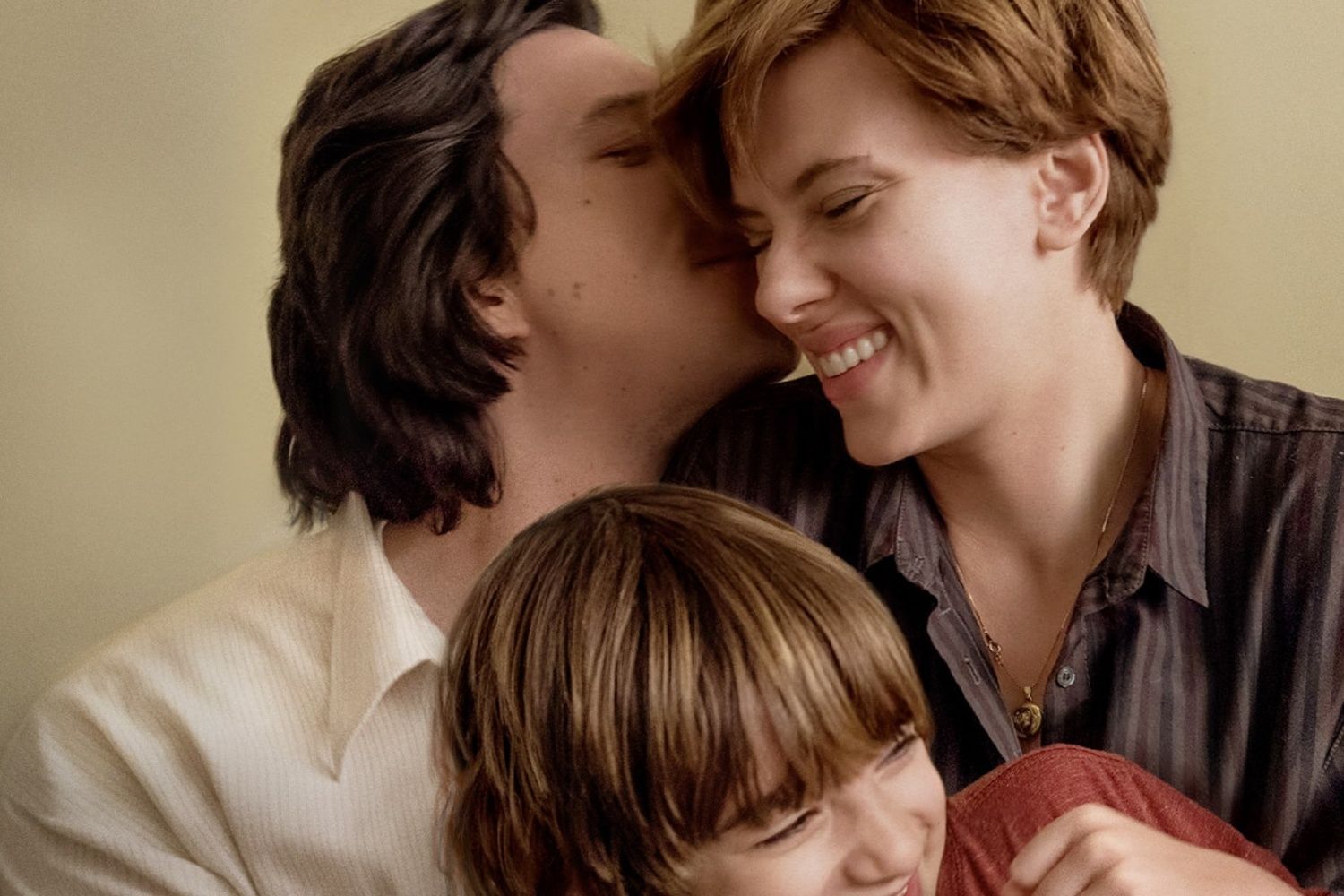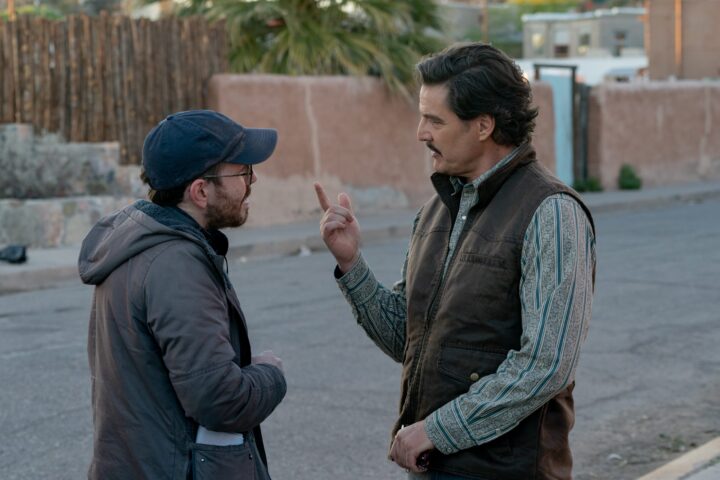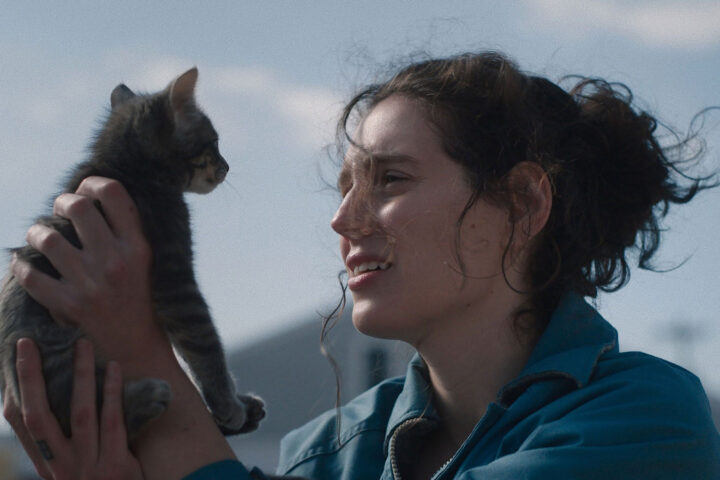What a sad, rich movie Noah Baumbach has fashioned with Marriage Story, about a New York theater director and actress who call it quits after their personal and creative partnership has run its course. A semi-autobiographical, remarkably perceptive picture about the emotional spoils of divorce, it orchestrates a fair-handed balance of empathy between the concerns of the husband and wife amidst the sting acrimony where there was once, only recently, harmony.
As depicted in superlative emotionality by well-matched stars Adam Driver and Scarlett Johansson, it’s movie about the best and worst in us, about the shock of having your world turned upside down versus the liberation of starting over on your own terms, and the inadvertent eradication of civility when legal battle lines are drawn. And particularly, as it usually is, it’s about one person looking to the future while the other is left in shambles, wondering where it all went so wrong.
What’s immediately clear in Marriage Story is that the Barbers—noted off-Broadway director Charlie (Driver) and muse and thespian spouse, Nicole (Johansson), are on the outs. Despite an opening where the pair recounts, in voice-over, what each loves most about the other (a sequence that could well serve a romantic comedy yet is ironically revealed to be a couple’s therapy exercise), their actual dynamic is far from lighthearted.
Preparing to move their acclaimed off-Broadway production of Elektra to The Great White Way, the picture quickly establishes the pair’s backstage milieu in rehearsals and a post-performance dinner with friends and colleagues (including a welcome Wallace Shawn) where public faces prevail.
In private it’s a different story, the couple reverting to isolation, the kind you can only have with the person who knows you better and worse than anyone. On the subway they don’t speak; things aren’t much better at their Brooklyn walk-up, Charlie insisting on giving Nicole notes on her performance, comically obsessive, yes, but driven by a need to talk about something else. In the middle is young son Henry (Azhy Robertson), about to be uprooted. The pain in their silences is acute. Nicole, privately in tears, maintains a veneer of control. Charlie downplays the seriousness of their distance.
But then Nicole announces she’s moving back home to Los Angeles and a movie industry that once primed her as a fledgling star (albeit for a celebrated nude scene in a raucous teenage comedy). Securing a role in an upcoming TV pilot, she sets up house with her very California, hilariously prescriptive mother, Sandra, beautifully played by the great Julie Haggerty in an adroitly written role.
What Charlie doesn’t know is that Nicole has no intention of returning to New York, and that this “break” and new professional opportunity represent a life change for his wife, whom we learn has been suppressing emotional and creative needs for years, living in her husband’s shadow, which also includes an infidelity.
Enter Nora Fanshaw (Laura Dern) a shark of a divorce attorney—a sort of Gloria Allred champion—whose soothing support, complete with tea, biscuits and compassionate embrace, lulls initially reluctant Nicole into her confidence. In a laid bare monologue, Johansson painfully conveys, in an extended close-up, the drivers of her deteriorating marriage and her flight toward self-actualization. It’s a marvelous piece of acting.
Dern, the consummate, world-class actress, is cool confidence personified, the ultimate feminist crusader, crying shoulder and women’s advocate, yet out for one thing: to win at any cost. It’s a “right now” character and one which, in a comic zinger of an act three speech, lays waste to a society predicated on women as a weaker, second class. She’s headed toward an Oscar.
Upon arriving in Los Angeles, Charlie is shocked to learn that Nicole has hired an attorney. In one of the picture’s truest, funniest moments, the serving of his divorce summons is played with stinging, comic skill, the envelope and act entrusted to Nicole’s nervous sister, Cassie (Merritt Weaver). Complicating matters, Sandra and Nicole maintain a buddy-buddy friendship with the soon to be ex—it’s a quagmire where everyone stands to get hurt.
Blindsided (“I thought we said we would handle this ourselves”), cash-strapped Charlie is defensively forced into retaining Bert Spitz (Alan Alda), a low-key entertainment lawyer who assures Charlie they won’t end up in court but should prepare in case they do.
And they do. But by that point, Charlie has swapped Bert for an expensive new counsel, played fiercely by a take-no-prisoners Ray Liotta, who like Norah is determined to win, even if the cost is scorched earth between the spouses. A courtroom battle where every innocent, past remark or action becomes a weaponized transgression, ranks among the movie’s finest.
Much of what’s at issue in the impeding settlement is whether the family is a New York or Los Angeles one, which will ultimately determine young Henry’s future residence. Consequently Charlie, who should be celebrating a just-received MacArthur Genius Grant intended to underwrite his new show, must take a full-time place in Los Angeles for proximity to his son, necessary for any hope of joint custody.
The picture’s take on these two places presents a bustling, creatively cultured community of New York versus a vapid, zoned out Hollywood production team for Nicole’s new TV show, making it clear that unlike Randy Newman, Brooklynite Baumbach has no love for LA, continually referred to here as utopia because of “all the space.” That’s literal, of course, for the couple.
The picture’s most powerful scene comes from a well-intentioned act—Nicole dropping by Charlie’s modest new digs with the intention of speaking together away from their attorneys. And this gesture quickly devolves into a screaming match of acid barbed dialogue, so painful as to be utterly realistic of the life moments where terrible things get said—the worst you could ever say to a person you love—which can never be taken back. By its conclusion, the very fine Driver is a crumpled, emotional mess.
Marriage Story has been compared to Robert Benton’s indelible 1979 Oscar-winner Kramer vs. Kramer in its insightful observations on the ravages of marital discord on all in its orbit. I suppose Alan Parker’s 1982 Shoot the Moon would also quality as an early precursor. But the new picture is not quite in the league of the former, which created a cultural discourse around gender predispositions to parenting, the right in 1977 for a woman like Meryl Streep’s Joanna Kramer to go off and “find herself,” itself a novel, unorthodox concept at the time for a seemingly “happy” housewife and mother. There was also a deeply impactful Justin Henry as the young son caught in the middle, whose pain became ours. Marriage Story large avoids penetration of the adolescent psyche; the child is never much allowed to be a dimensional person, rather more a point of divorce contention.
Baumbach and company don’t quite achieve such heights, mainly because what’s at stake here—the machinations of the settlement and leads’ emotional fulfillment—is someone less substantive and certainly less socially provocative. Also by contrast, Kramer vs. Kramer, presented the flight from a stifling marriage as essential to survival, Streep’s Joanna explaining that the alternative to leaving the family home might be to “one day…go right out the window.” Yet despite these differences and like that picture, Baumbach slightly tips the scales of identification toward husband Charlie, despite his follies, which include an episode of rationalized cheating, the knowledge of which Nicole kept private and from which she did not recover.
In contrast to Joanna Kramer, Nicole’s life crisis is rooted no less in the human need for self-actualization but informed by a very clear, distinctly contemporary confidence and bounty of personal resources lacking her antecedent. Ditto the strength of her safety net of family, professional prospects and financial solvency—all avenues to empowerment. That’s a big difference, and one that makes the mechanics of her flight perhaps less risky, or brave maybe, though no less understandable.
If there is one misstep in the film it comes as an out of place, late musical number set in a Manhattan eatery, Charlie uncharacteristically taking an open mic for a full, musical rendition of Sondheim’s Being Alive, odd for a theater director with no prior (at least in the film) or established performance tendencies and awkwardly shoehorned into the film because, as Baumbach has stated, he always wanted to hear Adam Driver sing that song so this movie seemed like a fit. It wasn’t.
No matter. Marriage Story is one of the year’s terrific pictures—emotionally generous, incisive and deeply personal American filmmaking.
3 1/2 stars.



